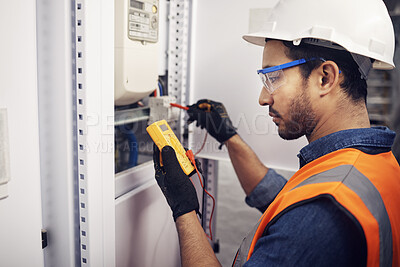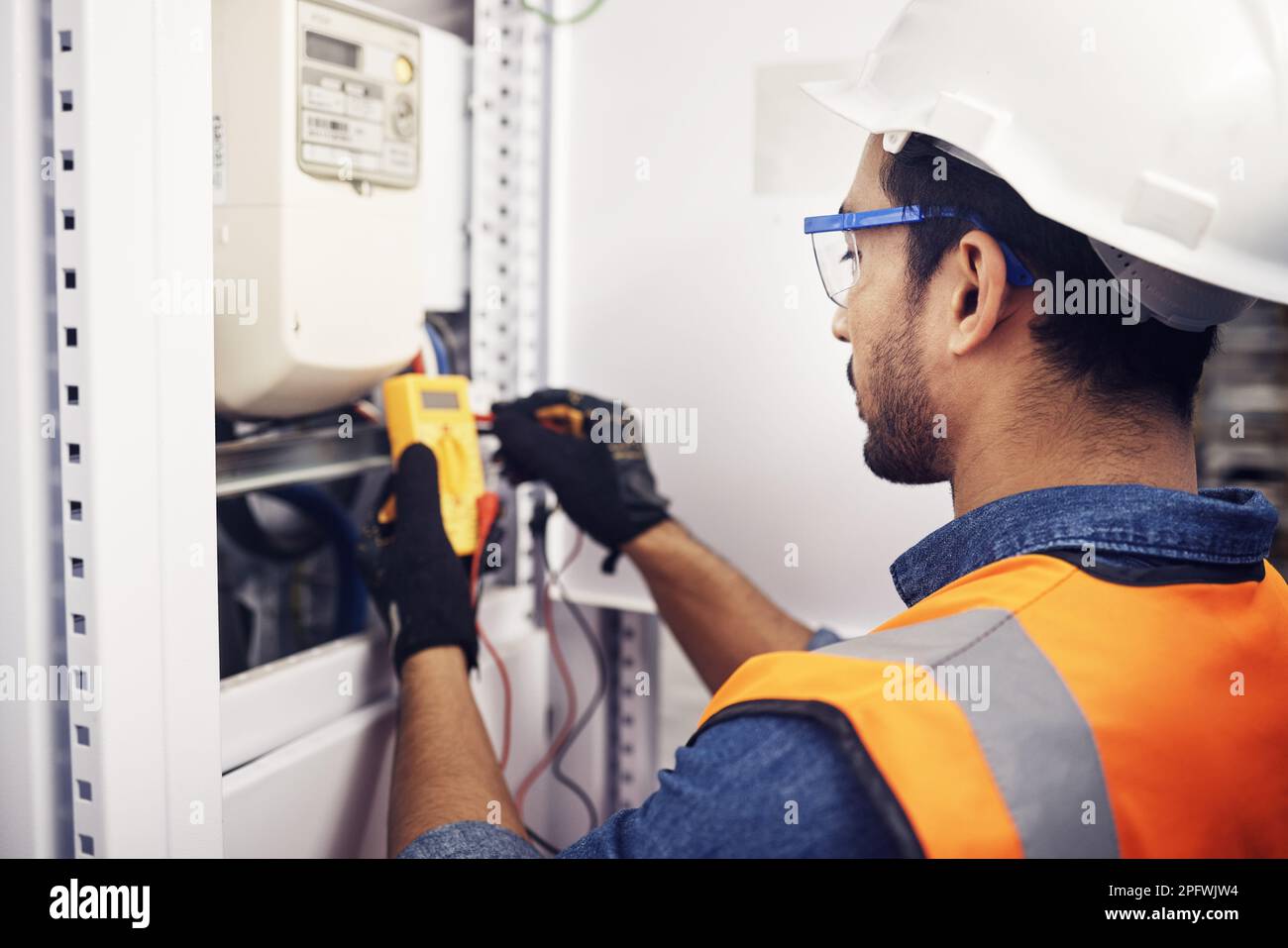How energy testing north carolina reveals air loss issues that raise your utility bills
How energy testing north carolina reveals air loss issues that raise your utility bills
Blog Article
How Power Screening Can Lead to More Lasting Living Solutions
Energy testing is an important device for advertising lasting living. It discovers inefficiencies in power usage within homes. Techniques such as power audits and thermal imaging provide beneficial understandings. House owners can determine locations needing enhancement, from insulation to devices. Resolving these ineffectiveness can result in substantial energy cost savings. Many stay unaware of the full possibility of these practices. What actions can people take to enhance their homes and add to a much more sustainable future?
Recognizing Energy Screening and Its Significance

Common Techniques of Power Testing
There are a number of usual methods of energy screening that home owners can utilize to examine their energy effectiveness (energy testing). One extensively utilized technique is the blower door test, which gauges the air leak in a home. By pressurizing the structure, it identifies drafty locations that might call for securing. One more approach is thermal imaging, where infrared electronic cameras spot temperature variations in wall surfaces, home windows, and ceilings, highlighting insulation issues.Energy audits are likewise prominent, including a comprehensive evaluation of a home's energy use, usually conducted by a professional. These audits may consist of evaluating heating and cooling systems, appliances, and general energy consumption patterns. In addition, wise power meters can give real-time information on energy usage, aiding homeowners understand their consumption behaviors. With each other, these approaches supply important understandings, enabling homeowners to make enlightened choices concerning boosting their power efficiency and advertising lasting living methods
Identifying Energy Inefficiencies in your house
Determining energy inefficiencies in a home is crucial for property owners intending to lower energy intake and reduced energy costs. Common areas to examine include insulation, windows, and appliances. Poor insulation can bring about considerable heat loss in winter and undesirable warmth gain in summertime, making heating & cooling systems function harder. Breezy windows contribute in a similar way, permitting conditioned air to get away and enhancing energy demand.Additionally, obsolete appliances typically consume a lot more energy than their modern-day equivalents, even more intensifying inadequacy. Homeowners need to also take into consideration the illumination system, as incandescent light bulbs use even more energy contrasted to LED options.Regular upkeep of heating and cooling systems is essential, as disregard can lead to minimized performance. By methodically examining these aspects of a home, property owners can pinpoint locations needing improvement. Attending to these inadequacies not only boosts comfort however additionally contributes to a more sustainable lifestyle by lessening energy waste.
The Function of Power Audits in Sustainability
Energy audits play a crucial role in promoting sustainability by offering property owners with a considerable assessment of their energy use. These evaluations determine areas where energy is thrown away, allowing individuals to understand their consumption patterns and make notified choices for enhancement. By disclosing ineffectiveness in heating, air conditioning, insulation, and devices, power audits work as an important device for lowering total energy demand.Furthermore, they help with the execution of energy-saving actions, such as updating insulation or installing energy-efficient lights, which can considerably decrease energy bills and reduce carbon impacts. The understandings gained from an energy audit encourage home owners to focus on sustainability in their living atmospheres. As even more homes participate in this procedure, the cumulative influence contributes to broader ecological objectives, cultivating a society of energy consciousness and obligation. Inevitably, energy audits are foundational to advancing lasting living options, benefitting both specific homeowners and the setting at large.
Innovative Technologies for Energy Effectiveness
As homeowners significantly look for to improve their energy performance, ingenious innovations are emerging to sustain these ventures. Smart home systems, equipped with sensors and automation, enable homeowners to check and manage power consumption in real-time. These systems can readjust heating, air conditioning, and illumination based upon tenancy, therefore lowering waste.In addition, innovations in energy-efficient home appliances have actually made significant strides. Tools such as ENERGY STAR-rated fridges and washing devices eat much less power while supplying excellent performance. The assimilation of eco-friendly power sources, like solar panels and wind generators, allows property owners to produce go their very own power, reducing reliance on nonrenewable resources.Building materials have also evolved, with alternatives like insulated concrete types and energy-efficient windows adding to lowered power loss. With each other, these innovative innovations not only enhance energy efficiency however additionally cultivate a more sustainable living atmosphere, encouraging house owners to make impactful selections in their power intake methods.
Long-Term Advantages of Lasting Living
While many may watch lasting living as a pattern, its long-lasting benefits expand much beyond mere way of life options. Embracing lasting methods results in considerable reductions in carbon impacts, adding to a healthier world. By reducing source usage and focusing on sustainable energy, people and neighborhoods can experience reduced utility prices. This financial alleviation can improve financial security with time, enabling reinvestment in other important areas.Furthermore, lasting living fosters stronger area connections as individuals collaborate on neighborhood efforts, advertising social cohesion. Health benefits also arise, as decreased pollution and increased environment-friendly areas enhance air high quality and overall wellness. Additionally, future generations will inherit an extra lasting atmosphere, ensuring the schedule of all-natural sources and biodiversity. Eventually, the lasting benefits of sustainable living incorporate environmental, financial, and social measurements, offering a compelling situation for individuals to take on and maintain these methods for the better good.
Steps to Apply Energy-Saving Solutions
Executing energy-saving remedies begins with an extensive assessment of energy usage patterns to determine areas for improvement. Once these patterns are comprehended, people can identify energy-efficient upgrades that straighten with their needs. view publisher site Continuous tracking and changes to energy usage guarantee that these services remain effective in time.
Examine Power Consumption Patterns

Assessing power intake patterns is a vital action toward identifying reliable energy-saving services. By methodically tracking use throughout different times and individuals, organizations and devices can identify areas of excessive usage. This analysis can disclose peak use durations, enabling a far better understanding of when energy demands are highest possible. In addition, taking a look at patterns permits comparisons in between comparable appliances, highlighting those that operate much less successfully. Data collection approaches, such as wise meters and power audits, offer valuable understandings into general power use. Determining patterns over time can help in recognizing seasonal variants and changes in intake behaviors. This fundamental understanding is essential for creating targeted strategies that advertise lasting living and lower total power expenditure.
Identify Energy-saving Upgrades
To efficiently apply energy-saving remedies, determining energy-efficient upgrades is important for both businesses and home owners. This process starts with a comprehensive examination of existing systems, consisting of a/c systems, insulation, and appliances. Upgrades may incorporate setting up ENERGY STAR-rated devices, improving insulation, and using energy-efficient windows. Furthermore, executing wise thermostats can enhance heating and cooling down schedules, reducing energy intake. Shifting to LED lights is one more effective measure, as it consumes considerably much less power than standard bulbs. In addition, exploring renewable energy testing south carolina power options, such as solar panels, can give long-lasting savings. Eventually, focusing on these upgrades not only adds to reduced energy costs yet also promotes a dedication to sustainability, profiting both the environment and future generations.
Screen and Readjust Usage
Surveillance and adjusting power usage is essential for optimizing the benefits of energy-saving options. Routinely examining power usage patterns permits services and individuals to identify areas for enhancement. By making use of clever meters and power administration systems, customers can track real-time use and identify any kind of anomalies that may show inefficiencies.Adjusting habits, such as switching off lights and disconnecting unused tools, even more improves energy financial savings. Additionally, scheduling home appliances to operate during off-peak hours can substantially minimize costs.Conducting regular power audits warranties that implemented remedies continue to be reliable gradually. By proactively involving in surveillance and changing methods, people can enhance their power effectiveness, add to sustainability initiatives, and ultimately decrease their environmental footprint.
Regularly Asked Inquiries
Just how much Does a Power Audit Typically Expense?

Can Energy Testing Help In Reducing Utility Expenses?
Energy screening can significantly minimize utility bills by determining inadequacies in a home's energy usage. By dealing with these problems, property owners often experience reduced intake and prices, bring about even more affordable power monitoring and boosted economic cost savings.
What Certifications Should an Energy Auditor Have?
An energy auditor should possess pertinent certifications, such as RESNET or BPI, along with experience in building sciences. air tight solutions. Solid analytical abilities and knowledge of energy effectiveness methods are necessary for conducting accurate evaluations and offering effective referrals
Are There Government Motivations for Power Effectiveness Upgrades?
Federal government motivations for energy efficiency upgrades often exist, consisting of tax grants, credit histories, and refunds. These programs intend to encourage organizations and house owners to buy energy-saving innovations, ultimately advertising environmental sustainability and lowering overall power usage.
How Often Should I Conduct Energy Screening in My Home?
Power testing must preferably be carried out every year to identify ineffectiveness. Homeowners may take into consideration much more regular assessments after significant remodellings, adjustments in power costs, or if unusual drafts or temperature level variants are noticed within the home. Energy screening enables the assessment of exactly how well a home uses energy, pinpointing areas where waste takes place. Recognizing power ineffectiveness in a home is important for homeowners aiming to minimize power intake and reduced energy bills. Power audits play an important function in promoting sustainability by offering property owners with a comprehensive evaluation of their energy usage. By revealing ineffectiveness in home heating, air conditioning, insulation, and home appliances, energy audits offer as an important tool for decreasing general energy demand.Furthermore, they facilitate the implementation of energy-saving measures, such as updating insulation or setting up energy-efficient lighting, which can substantially decrease utility bills and lower carbon impacts. Power screening can considerably reduce energy costs by recognizing inadequacies in a home's power use.
Report this page